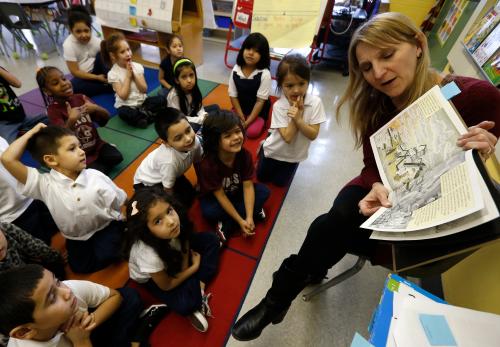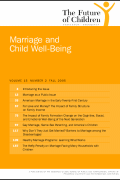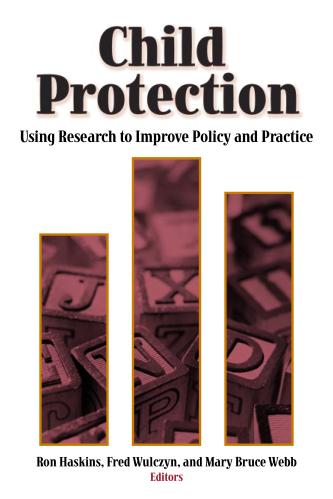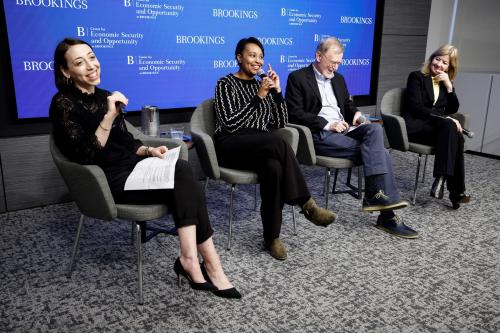Madison Rosen contributed to this post
Earlier this week, Brookings hosted a discussion about universal pre-school, a hot topic across the country. Although the conventional wisdom is that all children benefit from pre-school and that states should be providing universal pre-K, the achievement test scores of children who attend pre-K tend to converge with the test scores of children who did not attend once those children enter elementary school. In fact, that children who participated in a statewide pre-K program in Tennessee had worse attitudes toward school, poorer work habits, and lower test scores by the time they reached third grade than children who did not attend the program.
Jeanne Brooks-Gunn, a Columbia university professor and co-editor of the latest The Future of Children policy brief, discussed the new issue released by Princeton University and the Brookings Institution titled, “Starting Early: Education from Prekindergarten to Third Grade.”
Brooks-Gunn started by highlighting several points in The Future of Children journal as a whole, and then discussed some of the widely recognized premises of pre-K, including that “children who receive such education [should] benefit more than children who remained in ‘kith and kin’ care.”
Brooks-Gunn was introduced by Brookings Senior Fellow Ron Haskins, co-director of the Center on Children and Families. Following her overview of the volume, Haskins presented an overview of the policy brief and the Tennessee study’s “provocative” finding that students not enrolled in pre-K performed better in early elementary school than those assigned to enroll in pre-K. Haskins then provided possible explanations for the results.
Haskins turned the discussion over to Dale Farran, professor and senior associate director of the Peabody Research Institute at Vanderbilt University who co-lead the study on the Tennessee pre-k experiment. She addressed the criticisms of the study and provided responses to them, pointing to findings showing that “there [was] an advantage on every single measure [tested] for children who did not attend pre-K.”
William T. Gormley, a professor of public policy and co-director of Georgetown University’s Center for Research on Children in the U.S., provided a second keynote in which he referenced his own study of Tulsa’s pre-K program, as well as the “strong scholarly consensus” that pre-K improves school readiness. He suggested that the results found in the Tennessee study may have been due to a lack of quality in K-3 teachers, who were unprepared for students who had already completed pre-K programs.
Following the two keynotes, Haskins opened up the discussion to the rest of the panel, which included Art Rolnik, senior fellow and co-director of the Human Capital Research Collaborative at the University of Minnesota. Rolnik proposed that the solution to the achievement gap among students is not necessarily pre-K or the absence of pre-K, but rather is having “engaged and empowered” parents starting in prenatal development, as well as government scholarships for low-income families.
Though the panel of scholars differed on their views of pre-K programs based on differing research in the field, they agreed on the fact that a research agenda must be set to further investigate how programs can best support children’s positive attitudes toward schooling and long-term academic and social/emotional success.
Watch the full video event here: https://www.brookings.edu/events/trouble-in-the-land-of-early-childhood-education/









Commentary
WATCH: Does universal pre-school do more harm than good?
October 28, 2016